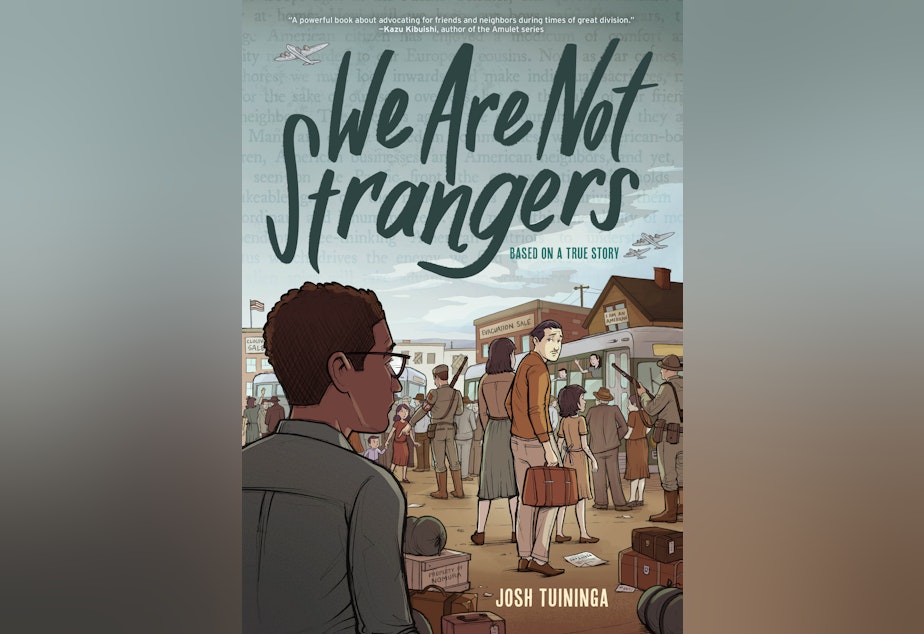'We Are Not Strangers' depicts the little told story of allyship between Seattle's Sephardic and Japanese communities

In his new graphic novel 'We Are Not Strangers," author and illustrator Josh Tuininga explores the relationship between a Sephardic Jewish man and his Japanese American neighbor as they navigate the tension in Seattle on the precipice of World War II.
For Tuininga, the story starts with his own family.
"My uncle told me about going to his grandfather's funeral," he said.
It started like most Sephardic funerals: inside a synagogue, with family and friends.
Then a handful Japanese American families walked in.
Sponsored
"Nobody knew who they were, or why they came. But what my uncle found out is that his grandfather, his Papoo, had helped these families when they were forced out of the neighborhood and incarcerated during the war," Tuininga said.
The story stuck with him — especially how the environment his grandfather lived in had fostered such a strong relationship with his Japanese American neighbors.
So, he started researching.
"I started meeting with historians, which really helped me get my facts straight, and kind of made me realize also that this really does take place in the Central District."
In the 1900s, many of Seattle's ethnic communities were segregated from the predominantly white population — redlined into the Central District. That included both Japanese Americans and Sephardic Jews.
Sponsored
The Sephardim are Jewish people who were expelled from Spain during the Spanish inquisition. Unlike Ashkenazi Jews, who come from Central or Eastern Europe, Sephardic Jews were pushed into the Mediterranean and Middle East. Instead of Yiddish, they speak Ladino — a mix of Hebrew, Arabic, and Spanish.
The third largest population of Sephardic people in the United States reside here, in Seattle.
RELATED: 'We are still here' – the art and culture of Seattle's Sephardic community
Tuininga said his uncle's story isn't the only time he heard about the local Sephardic and Japanese American communities helping each other out during World War II.
He spoke with the owners of Link's Tackle Shop, which was based in the Central District.
Sponsored
"It turned out that they were actually helped by a Jewish insurance agent," he said. Now, the family owns Seattle Fish Guys, which still operates in the Central District.
Tuininga said he felt it was important to tell this story because it wasn't one he had seen before. It's a story that highlights the complexity of that era, he added.
Many Sephardic Jews were supportive of the United States, and their actions during the war — they were an ally in the fight against the German Nazi regime. But, here at home, they were watching their neighbors be taken away and placed into camps.
Tuininga said this isn't a savior story. Rather, it's a story about working together and finding ways to help one another; it's a story of community.





